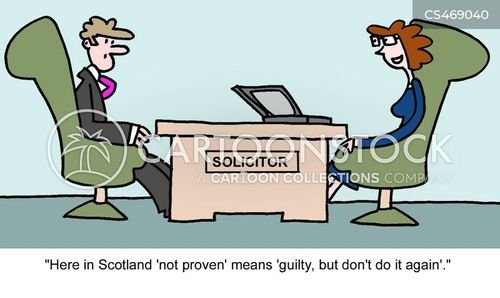Capt Lightning
Well-known Member
- Location
- Historic Buchan, Scotland
Since the 17th. century, Scots law sic has had three possible verdicts at a trial - Guilty, Not guilty, and Not Proven. Although Not proven has the same effect as Not guilty, it basically suggests that rather than being innocent, there is insufficient proof of a guilty verdict. This third outcome is now set to be abolished and Scots law will fall in line with the rest of the UK.


